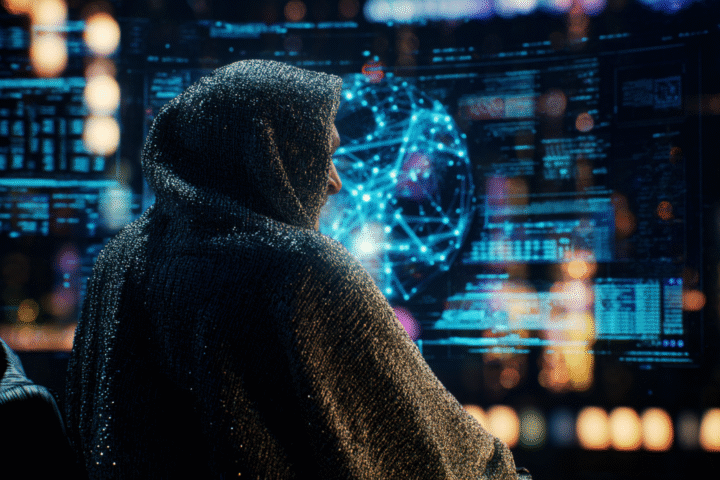When people hear the phrase smart contracts, it can sound like something out of a sci-fi movie or a job for a team of expensive lawyers. In reality, they’re one of the coolest building blocks of the digital economy, quietly powering everything from decentralized apps to token swaps.
Key points:
- Smart contracts are code that automate digital agreements on the blockchain but they are not legally binding documents you would bring to court
- They are powerful tools but not perfect since they depend on the quality of code inputs and external data which means bugs and errors can still happen
- Clearing up misconceptions helps build trust and adoption by showing what smart contracts can and cannot do which supports users developers and regulators in growing blockchain’s role in the digital economy
The problem? A lot of myths and half-truths still surround them. This article is here to clear the air and break down the most common misconceptions so anyone, yes, even total beginners, can understand what smart contracts actually are and why they matter.
What Smart Contracts Really Are
At their core, smart contracts are just computer programs that run on a blockchain. Think of them as little digital vending machines. You put in the right input, like sending crypto to a contract address, and the machine automatically gives you the output it was programmed to deliver. No middleman, no waiting on someone behind a counter, no wondering if the other side will hold up their end of the bargain.
Here’s how it works on a blockchain: the code for the contract is written, deployed, and then stored publicly. Once it’s there, anyone can interact with it. The blockchain network (whether it’s Ethereum, Solana, or others) makes sure the rules are followed exactly as written. That means if the contract says “send tokens when condition X is met,” it will happen automatically, without human intervention. In short, it’s trust coded directly into the system.
Common Misconceptions About Smart Contracts
Let’s bust some myths, shall we? Smart contracts are cool, but they’re often misunderstood. Here are the big ones:
Related: Crypto Titans Bunker Down Now: Vitalik’s Austerity Vow, Binance $1B Bitcoin Shield
Misconception 1: They’re legally binding contracts.
Despite the name, smart contracts aren’t legal documents you’d bring to court. They’re lines of code that say, “if X happens, do Y.” They don’t replace your lawyer, but they can replace the paperwork shuffle when it comes to digital transactions.
Misconception 2: They’re fully autonomous and error-proof.
Some people imagine smart contracts as flawless robots that never mess up. In reality, they’re only as good as the code written into them. If the code has a bug or someone feeds in bad data, things can go sideways.
Misconception 3: They eliminate the need for trust completely.
It’s tempting to think smart contracts mean you never need to trust anyone again. Not quite. You still place trust in the developers who wrote the code, the network that runs it, and external “oracles” that feed in real-world information like prices.
Misconception 4: They can do anything traditional contracts can.
Smart contracts shine in the digital world, but they can’t enforce real-world actions. They can move tokens, trigger payments, or manage access to online services, but they can’t, say, make sure someone delivers a pizza to your door.
Related: Privacy Confirmed: Advanced FHE Coming To All Shiba Inu Tokens
Why Clearing Up Misconceptions Matters
So why bother setting the record straight about smart contracts? Because misunderstandings don’t just confuse people, they can slow down adoption and even hurt confidence in the tech. If newcomers think smart contracts are flawless robots or iron-clad legal agreements, they’re in for a rude surprise. When expectations don’t match reality, trust takes a hit, and that makes people less likely to explore or invest.
It also matters on a bigger stage. As regulators and lawmakers figure out how to handle blockchain tech, misconceptions can shape the rules. If policymakers believe smart contracts are the same as legal contracts, or that they’re totally risk-free, they might write laws that don’t make sense in practice. On the flip side, a clear understanding helps pave the way for smart contracts to fit into the mainstream without unnecessary roadblocks.
Getting Smarter About Smart Contracts: Clearing the Path Forward
Smart contracts aren’t digital sorcerers or paper contracts wrapped in code. They’re powerful tools that bring automation, transparency, and efficiency to blockchain networks, but they also come with limits and trade-offs. Misunderstandings can lead people to either underestimate their potential or believe they can do everything.
By recognizing smart contracts for what they are, code that enforces digital agreements, we can build trust, avoid disappointment, and drive innovation where it matters most. The smarter we get about smart contracts, the more creative and reliable our digital economy will be.












